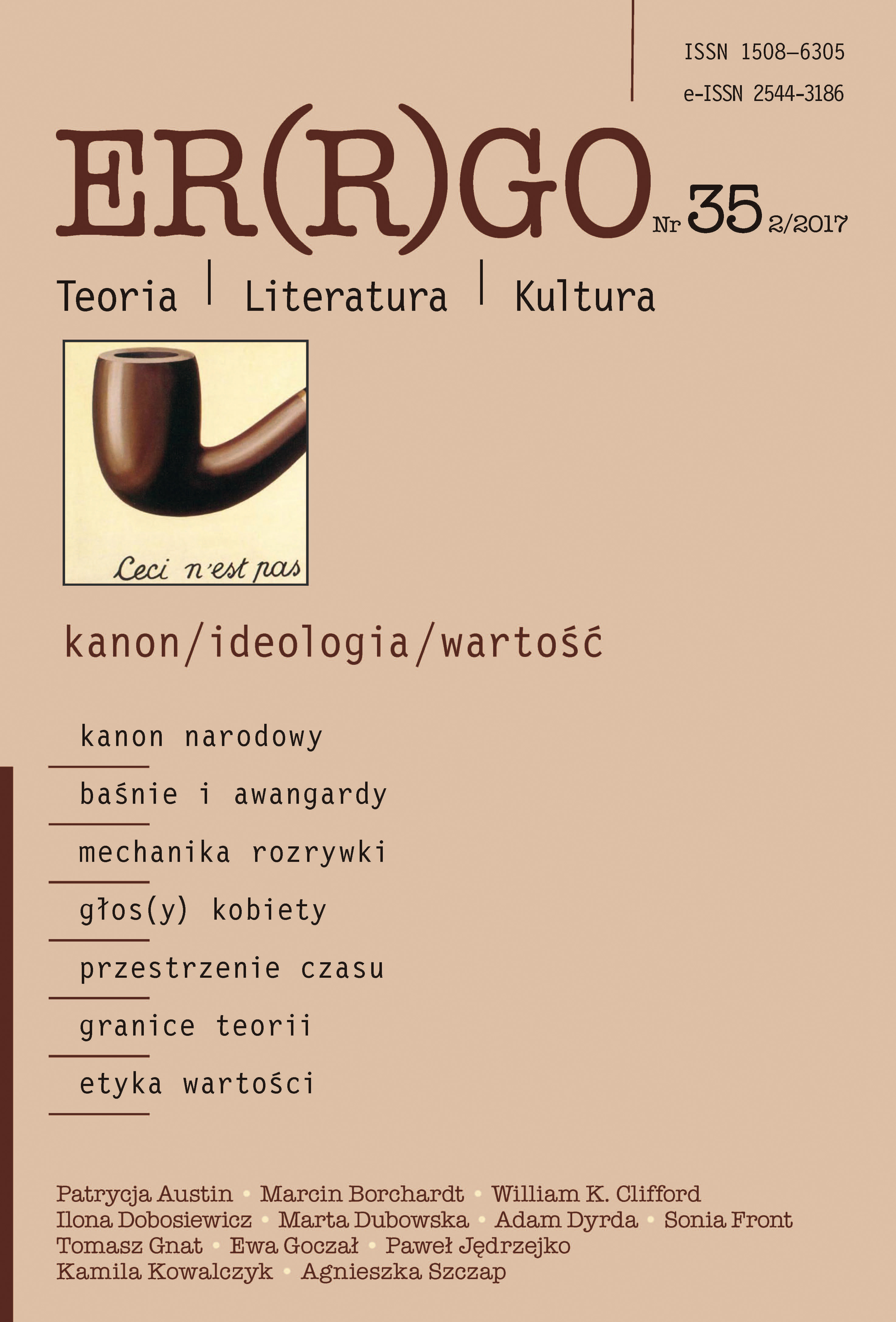„Jestem swoim własnym dziadkiem” – spacjalizacja czasu w Przeznaczeniu Michaela i Petera Spierigów
“I’m My Own Grandpa”—Spatialization of Time in Michael and Peter Spierig’s Predestination
Author(s): Sonia FrontSubject(s): Language and Literature Studies, Literary Texts, Studies of Literature, Philology, Theory of Literature
Published by: Wydawnictwo Uniwersytetu Śląskiego
Keywords: space; time; spatialization of time; spatial turn; Fredric Jameson; Michael and Peter Spierig’s Predestination; cultural practice
Summary/Abstract: Spatialization of time, that is, presenting time in the categories of space, measuringand rationalizing it, was a very significant social process at the end of the 20th century. The “spatial turn,” as it is called by Fredric Jameson, is connected with a postmodern individual’simmersion in a perpetual present. The separation of the individual from the past and the future, which has resulted in the deconstruction of the subject’s temporality, was caused by the processes characteristic of late capitalism. Spatialization of time in postmodernism expresses the integrity of space and time, the changing relations between them and their new conceptualizations. These changes are reflected in post-classical cinema that is quite often characterized by modular temporality. The plots of those films are divided into spatio temporal modules whose order is rearranged into a non-chronological syuzhet. Simultaneously, those films depict multifaceted human experience of time and the temporalization of space. Michael and Peter Spierig’s film Predestination (2014) blends the spatialization of time, characteristic of classical cinema, in which space and time are static entities, with post-classical nonlinear arrangement of the plot. Presenting space-time as static modules allows the directors to show subjectivity governed by the categories of space, rather than by the continuity over time. According to David Lewis, the identity of the protagonist, a time traveler, and his/her psychological continuity must be described by means of the differentiation between external time and personal time, because his/her identity relies on operating in spatialized time.
Journal: ER(R)GO. Teoria-Literatura-Kultura
- Issue Year: 2/2017
- Issue No: 35
- Page Range: 123-126
- Page Count: 14
- Language: Polish

